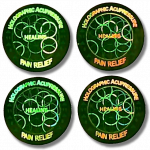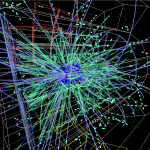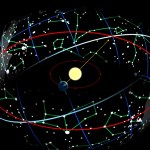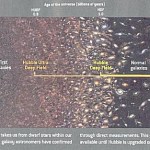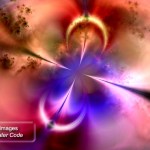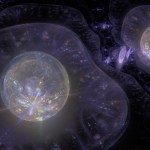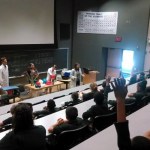Physical Sciences
I've decided to do a new round of profiles in the Project for Non-Academic Science (acronym deliberately chosen to coincide with a journal), as a way of getting a little more information out there to students studying in STEM fields who will likely end up with jobs off the "standard" academic science track.
Eighth in this round is Grant Goodyear, who started life as a theoretical chemist, and now does nuclear physics in the oil industry.
1) What is your non-academic job? These days I'm a nuclear physicist who works on the design and characterization of nuclear well-logging tools that are used…
I've decided to do a new round of profiles in the Project for Non-Academic Science (acronym deliberately chosen to coincide with a journal), as a way of getting a little more information out there to students studying in STEM fields who will likely end up with jobs off the "standard" academic science track.
Seventh in this round is a physics major who went into teaching high school, then decided to try medical school, and now works with the youngest possible subjects. He also had the excellent taste to send along a picture of himself with his dog...
1) What is your non-academic job? I am the…
I've decided to do a new round of profiles in the Project for Non-Academic Science (acronym deliberately chosen to coincide with a journal), as a way of getting a little more information out there to students studying in STEM fields who will likely end up with jobs off the "standard" academic science track.
Sixth in this round is an "adult-onset engineer" working at NASA on some cool stuff.
1) What is your non-academic job? I am a thermal engineer at NASA's Jet Propulsion Lab, working in the Cryogenic Systems Engineering group. Our group provides thermal engineering support (both cryogenic…
Have you heard the comet singing? From the Rosetta Blog this press release:
Rosetta’s Plasma Consortium (RPC) has uncovered a mysterious ‘song’ that Comet 67P/Churyumov-Gerasimenko is singing into space. RPC principal investigator Karl-Heinz Glaßmeier, head of Space Physics and Space Sensorics at the Technische Universität Braunschweig, Germany, tells us more.
Sound_comet2
Artist's impression of the 'singing comet' 67P/Churyumov-Gerasimenko. Credit: ESA/Rosetta/NavCam
RPC consists of five instruments on the Rosetta orbiter that provide a wide variety of complementary information about the…
The New York Times has declared that Academic Science Isn’t Sexist. What a relief! The authors are reporting the results of a broad study of many different parameters of the career pipeline, and are happy to report that there are no problems in academia. None at all, no sir.
Our analysis reveals that the experiences of young and midcareer women in math-intensive fields are, for the most part, similar to those of their male counterparts: They are more likely to receive hiring offers, are paid roughly the same (in 14 of 16 comparisons across the eight fields), are generally tenured and promoted…
It's been a bit of a depressing week. I suppose it's not any more depressing than usual, with the usual unending stream of pseudoscience, quackery (particularly of the Ebola type), and, of course, antivaccine nonsense to deal with. Then, as I'm writing yet another in a long line of unfunded grants, I find out that a foundation—and an anonymous foundation at that!—has donated close to $4 million to an "integrative oncology" practice in Ottawa affiliated with a naturopathy school to study "integrating" quackery with science-based oncology.
At first, I was thinking that I'd just do an…
"No testimony is sufficient to establish a miracle, unless the testimony be of such a kind, that its falsehood would be more miraculous than the fact which it endeavors to establish." -David Hume
It's sometimes mind-boggling how many different aspects of the Universe we touch on here at Starts With A Bang, and the past week has perhaps really exemplified that. Ranging from the largest scales down to the smallest, from Nobel-winning developments to the science of hundreds of years ago, here's what we've covered during the first week in October:
Are black holes made of dark matter? (for Ask…
The new academic year starts this week-- first day of classes is Wednesday-- and I'm dealing with the usual chaos associated with the influx of a new class of students. Who now look to me only a tiny bit older than SteelyKid and the Pip in the above picture (and if you think that sharing that extremely cute photo is part of the motivation for this post, well, you're not wrong...).
This year, the madness of the new term is complicated by having been away for essentially all of August, and by the fact that I'm teaching an entirely new class this term: Astronomy 052: Relativity, Black Holes, and…
"There is no dark side in the moon, really. Matter of fact, it's all dark." -Pink Floyd / Gerry O'Driscoll
It's been another fantastic week here at Starts With A Bang, where we've taken on a huge diversity of topics and run two fantastic posts from our contributing writers: Brian Koberlein and James Bullock. If you missed any of them (or if you want to catch them again), here's what we've covered this past week:
Is astrology a science? (for Ask Ethan),
The Universe in your home (for our Weekend Diversion),
The flattened fake-out globular, M19 (for Messier Monday),
The…
"When a star goes supernova, the explosion emits enough light to overshadow an entire solar system, even a galaxy. Such explosions can set off the creation of new stars. In its own way, it was not unlike being born." -Todd Nelson
Did you follow all the action this past week over at the main Starts With A Bang blog? With a new post nearly every day, we've really put together a set of amazing stories about the Universe we know (and are still discovering) for you, including:
Do the cosmic unknowns cast doubt on the Big Bang? (for Ask Ethan),
Martha Wash's biggest fan (for our…
About a week ago, my good bud Steve Novella noted a tasty bit of silly pseudoscience finding its way around the usual places, such as Facebook, Twitter, and the like. It was one of those times where I smacked myself on the forehead (metaphorically speaking, of course) and asked, “How on earth did I miss this bit of pseudoscience?” It is, after all, more than Your Friday Dose of Woo-worthy, even though I haven’t done a YFDoW segment for over a year. (Remember, I found that my creation had become too constraining; so I retired it. I might bring it back someday, but today is not the day,…
Homeopathy is quackery. There, I’ve fulfilled my normal requirement to start out all posts that I write having to do with homeopathy with a simple, declarative, and, most of all, true statement about what homeopathy is. I also like to mention briefly homeopathy’s two major “laws.” The first is the Law of Similars, a totally pseudoscientific “law” without basis in science that proclaims that the way to treat a symptom is to use a substance that causes that symptom in healthy people. The second “law,” of course, is the Law of Infinitesimals, which further states that the more you dilute a…
"Which is more likely? That the universe was designed just for us, or that we see the universe as having been designed just for us?" -Michael Shermer
After the end of another fun-filled week, it's time again to take a look at (and respond to) what you've had to say! Over on the main Starts With A Bang blog, we've tackled the following topics:
How deep does the Multiverse go? (for Ask Ethan),
Planetary Beers (for our Weekend Diversion),
A cluster that stands out from the galaxy, M23 (for Messier Monday),
The Mystery of the Missing Mini-galaxies,
How the experiment that…
Also coming to my attention during the weekend blog shutdown was this Princeton Alumni Weekly piece on the rhetoric of crisis in the humanities. Like several other authors before him, Gideon Rosen points out that there's little numerical evidence of a real "crisis," and that most of the cries of alarm you hear from academics these days have near-perfect matches in prior generations. The humanities have always been in crisis.
This wouldn't be worth mentioning, but Rosen goes on to offer an attempt at an explanation of why the sense of crisis is so palpable within the humanities, an explanation…
A few weeks back, a Union alumnus who works at Troy Prep contacted the college to arrange a visit for a bunch of second-graders, and asked if faculty would be willing to arrange talks and demos for the kids. I said something like "Sure, we could probably make liquid nitrogen ice cream for them," and then basically forgot about it until last week, when I said "Oh, crap, I have to make liquid nitrogen ice cream for 60 seven-year-olds on Monday!"
Fortunately, our students in the Department of Physics and Astronomy are awesome, and I was able to round up a handful of helpers from the summer…
The latest in a long series of articles making me glad I don't work in psychology was this piece about replication in the Guardian. This spins off some harsh criticism of replication studies and a call for an official policy requiring consultation with the original authors of a study that you're attempting to replicate. The reason given is that psychology is so complicated that there's no way to capture all the relevant details in a published methods section, so failed replications are likely to happen because some crucial detail was omitted in the follow-up study.
Predictably enough, this…
With very few exceptions, antivaccinationists labor under the delusion that they are not antivaccine. The reason is simple. Deep down, at some level, even the most dedicated antivaccine advocate knows that society quite rightly views it as a bad thing to be against a preventative intervention that has arguably saved more lives than any other medical intervention. Of course, as I've documented many times in the past, there are some who are openly antivaccine and proud of it, but they seem to be the minority. Most antivaccinationists, like Jenny McCarthy, hide behind a mantra resembling, "I'm…
Convective clouds forming over the Amazon in a blanket smoke. Image: Prof. Ilan Koren
Horse latitudes, doldrums, calms of Cancer and Capricorn: These are all synonymous names for the forsaken regions of the oceans that sailors of previous eras cursed because the winds that once pushed their sails die out there for weeks at a time. (One suggested explanation for the name “horse latitudes” is that some had to throw the horses overboard there when the supplies ran out.) On land, these subtropical belts – around 30-35° north and south of the equator – help form the world’s deserts.
These…
I have a son who's currently a physics undergrad. As you can imagine, I occasionally pass along a link or two to him pointing to stuff on the web I think he might find particularly interesting or useful. Thinking on that fact, I surmised that perhaps other science students might find those links interesting or useful as well. Hence, this series of posts here on the blog.
By necessity and circumstance, the items I've chosen will be influenced by my son's choice of major and my own interest in the usefulness of computational approaches to science and of social media for outreach and…
Well, it snuck up on me again, the way it has a tendency to do every year. Maybe it's because Memorial Day is so early this year. Maybe it's because there's just so much work to do this week given the multiple grant deadlines. Whatever the case, it just dawned on my last night that today is the first day of the yearly autism quackfest known as AutismOne (AO), which is being held at the Intercontinental O'Hare Hotel near Chicago. Of course, things are different this year. Given the schism between team Crosby and pretty much everyone else in the antivaccine movement, it's unclear what the deal…



